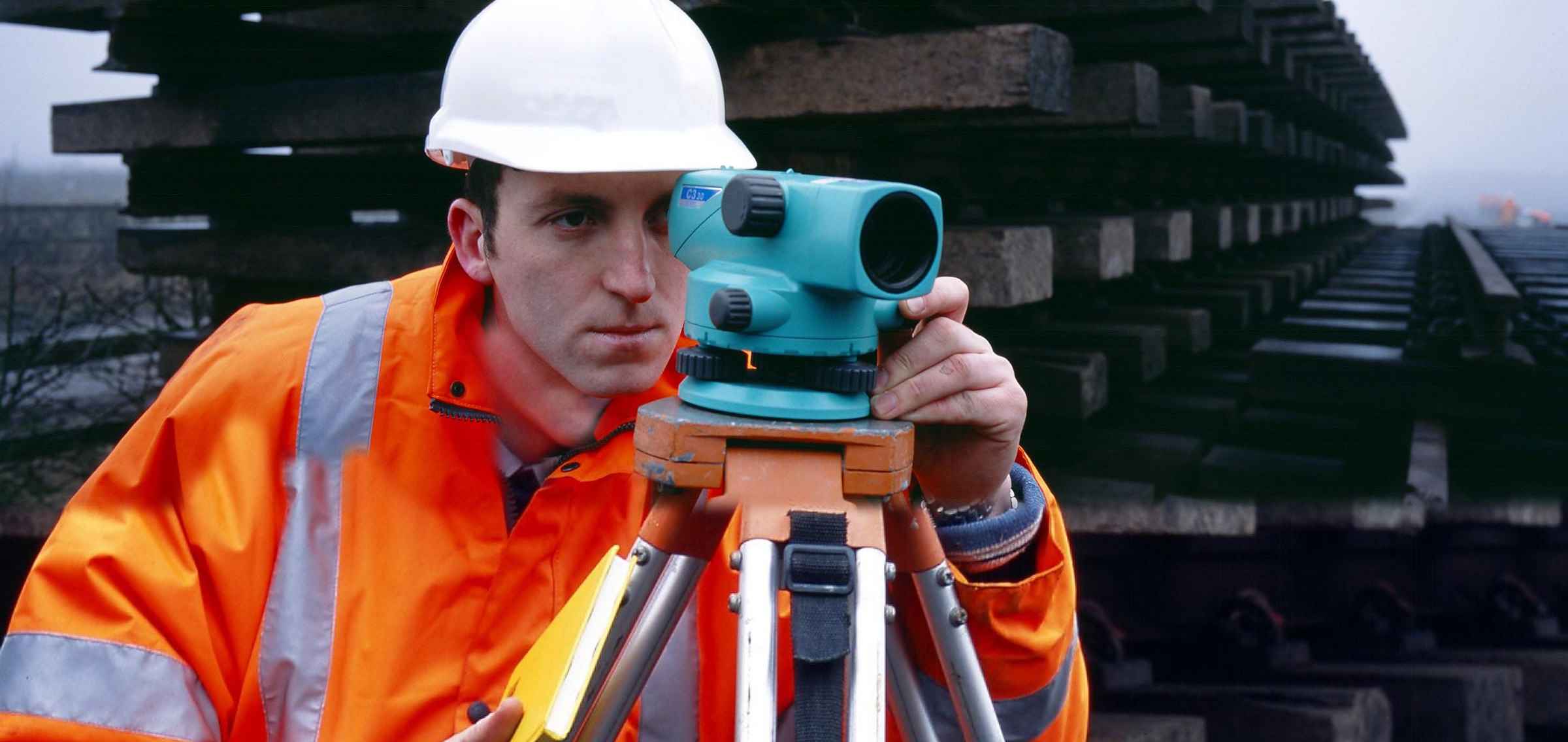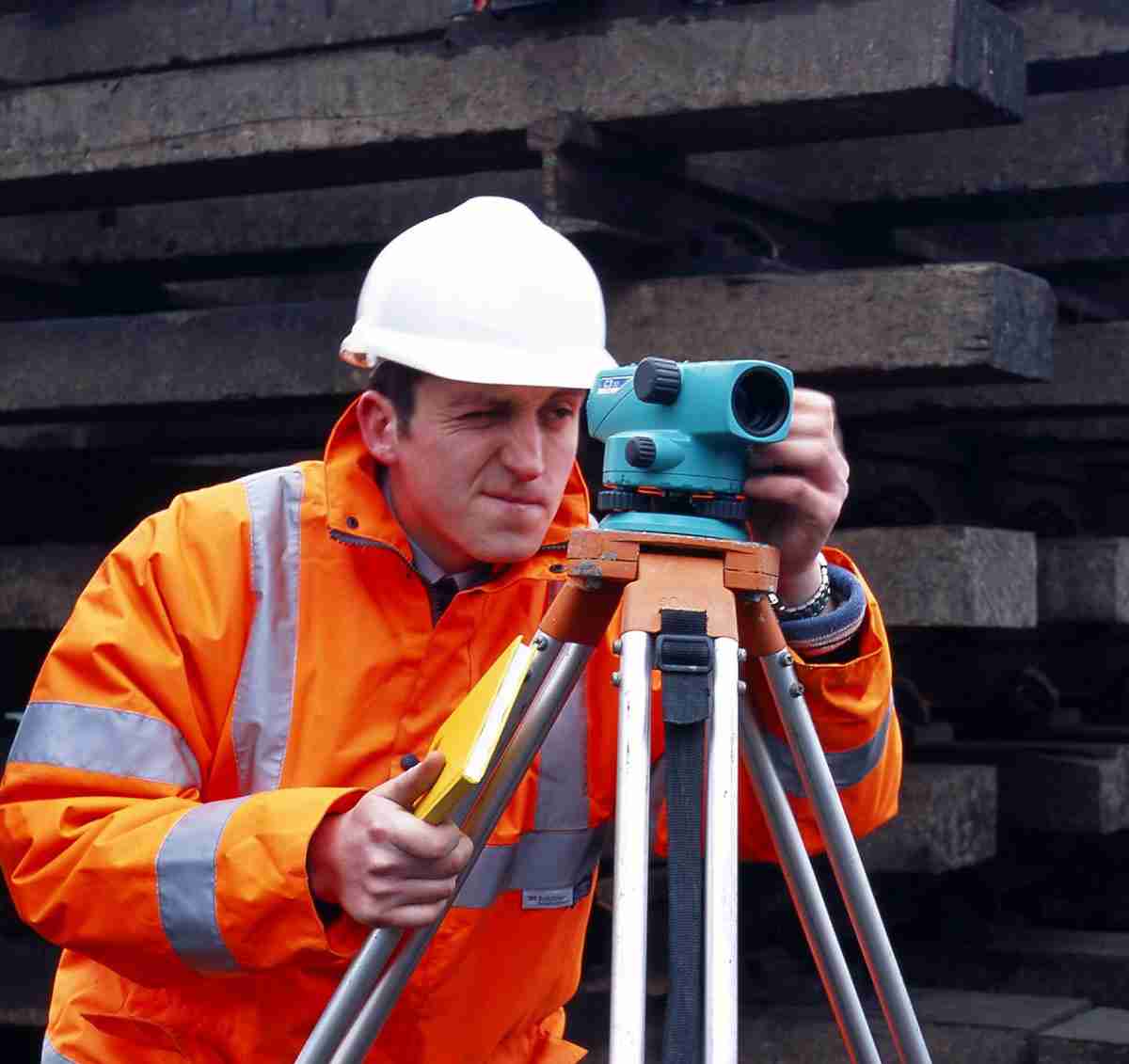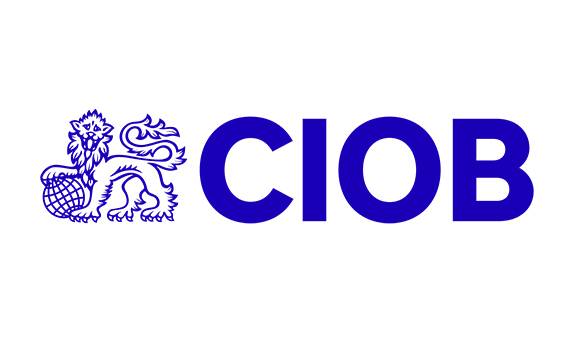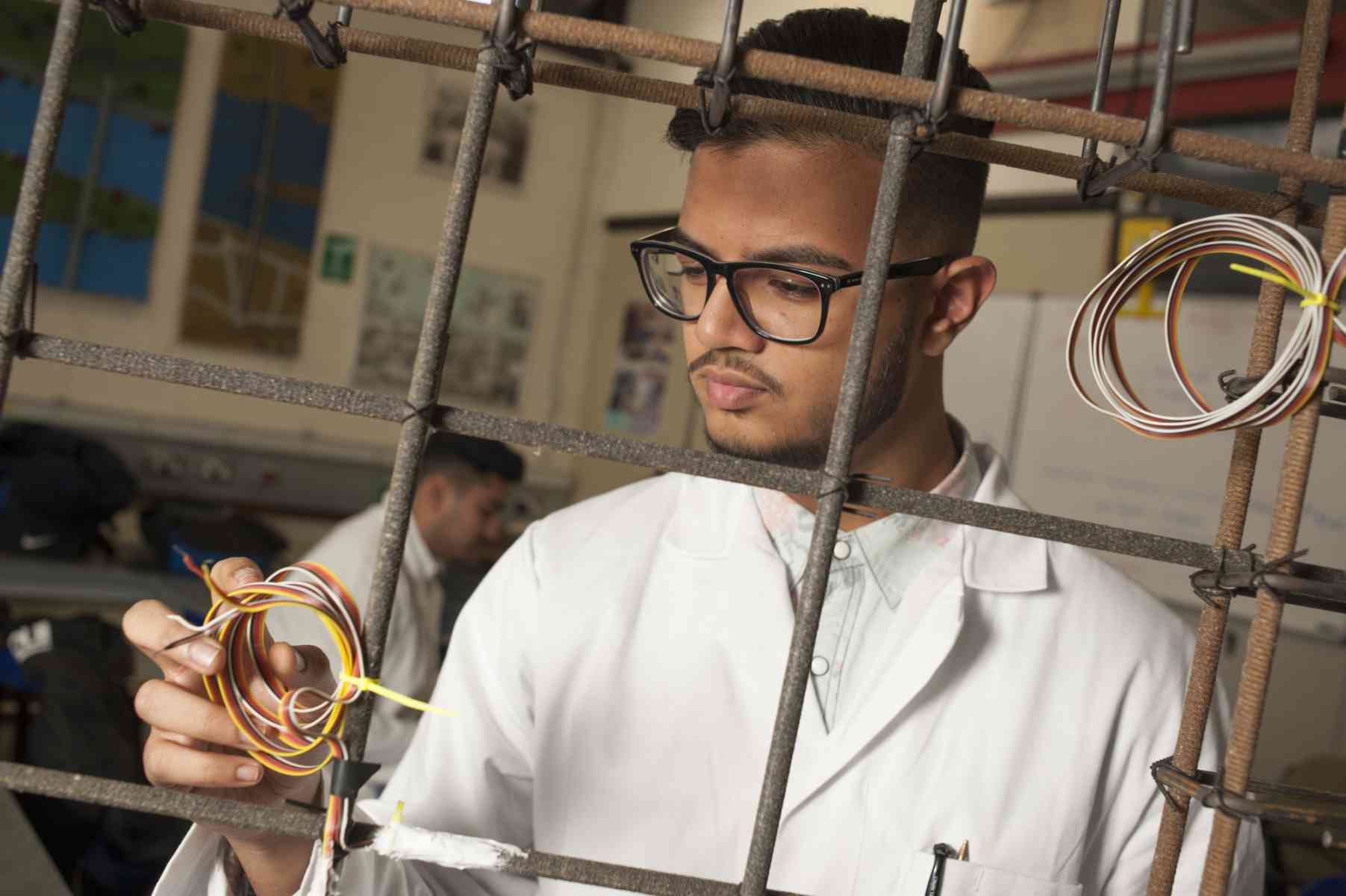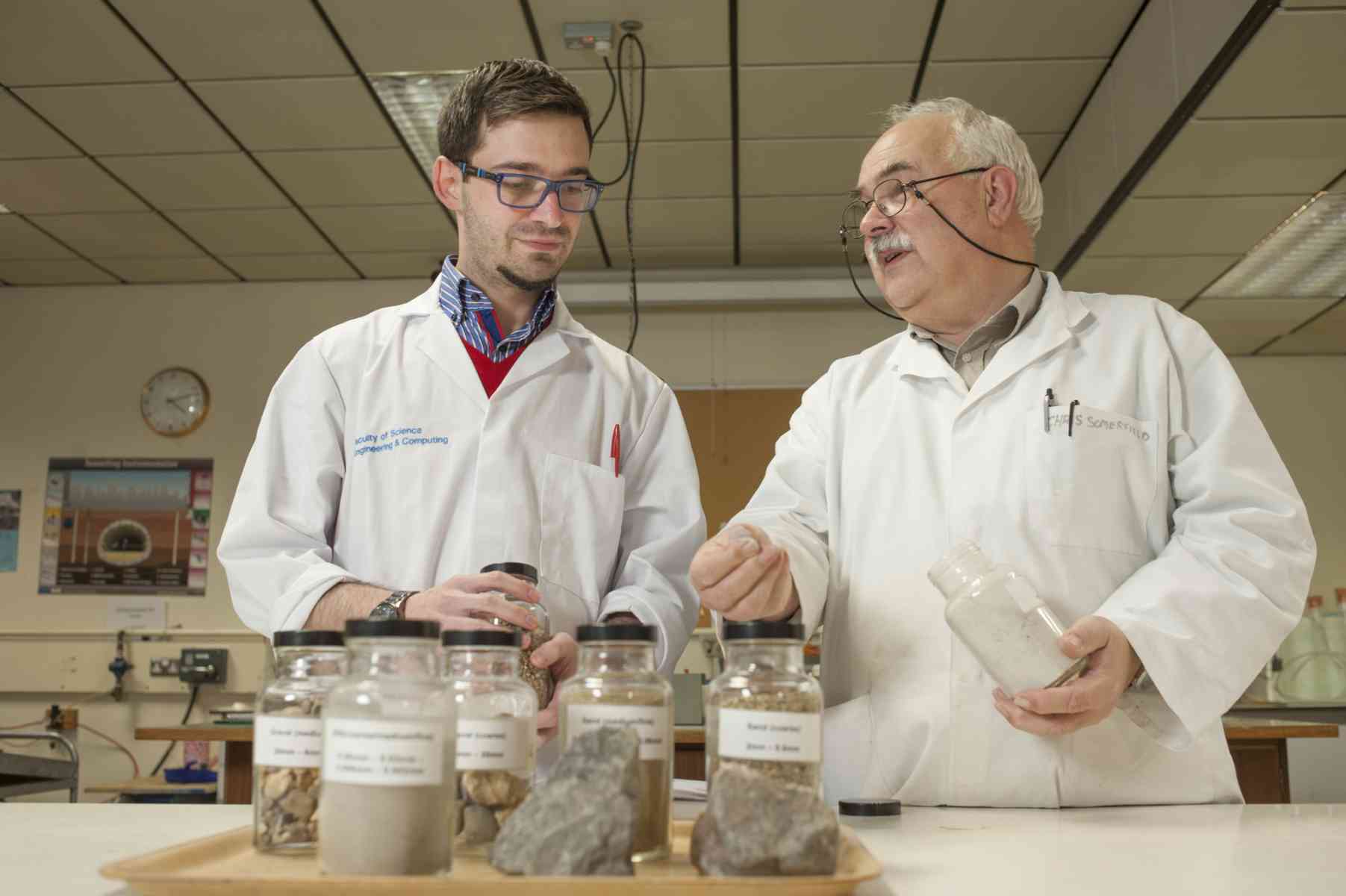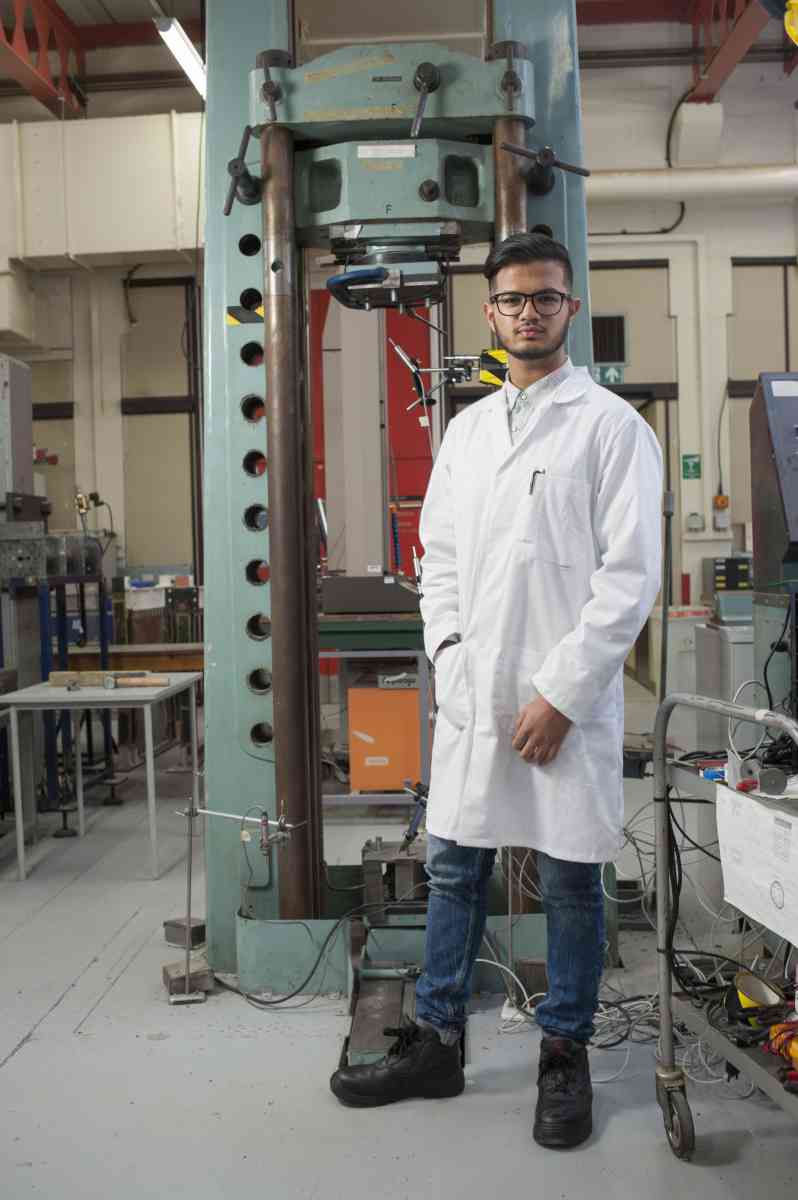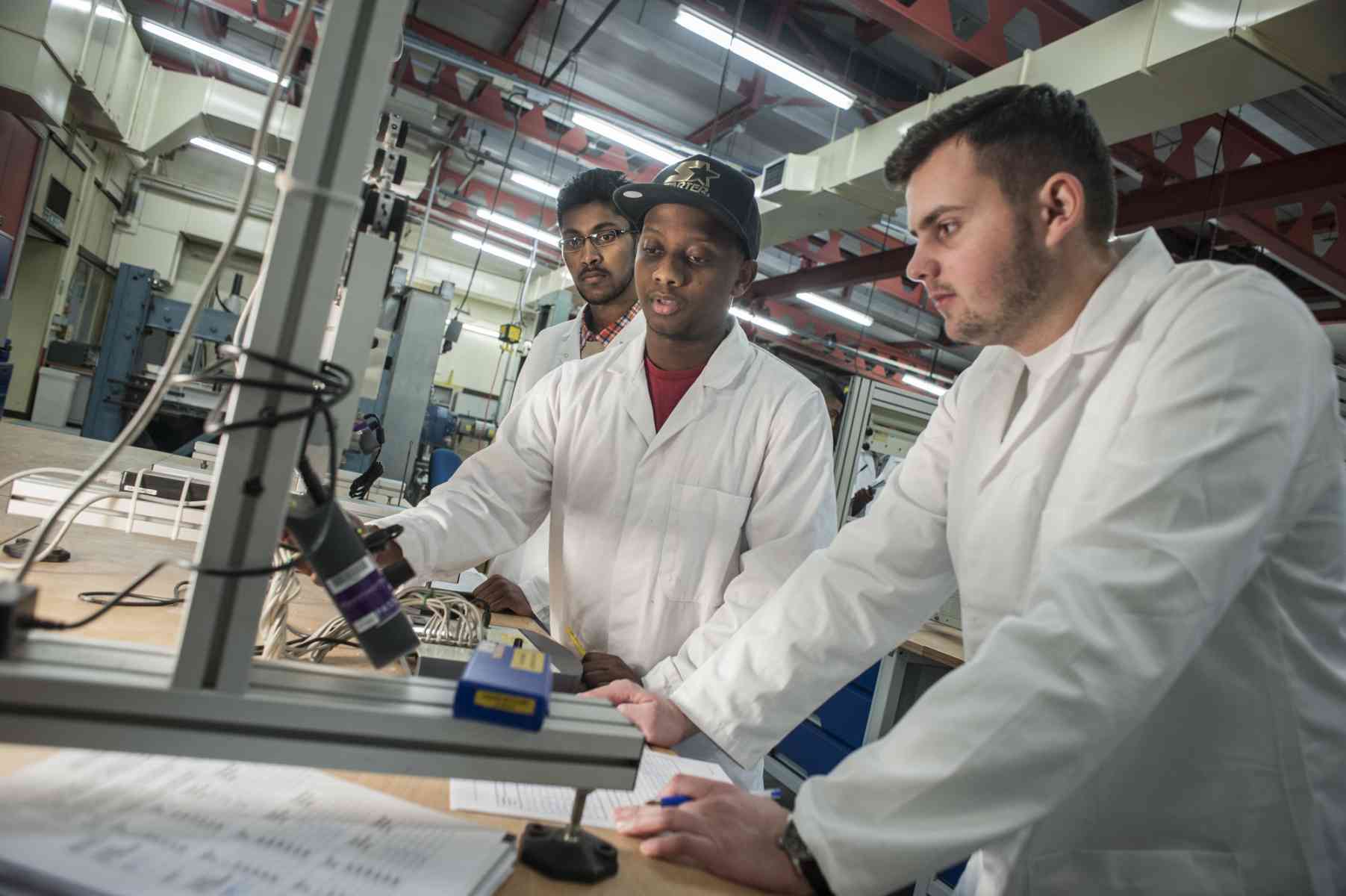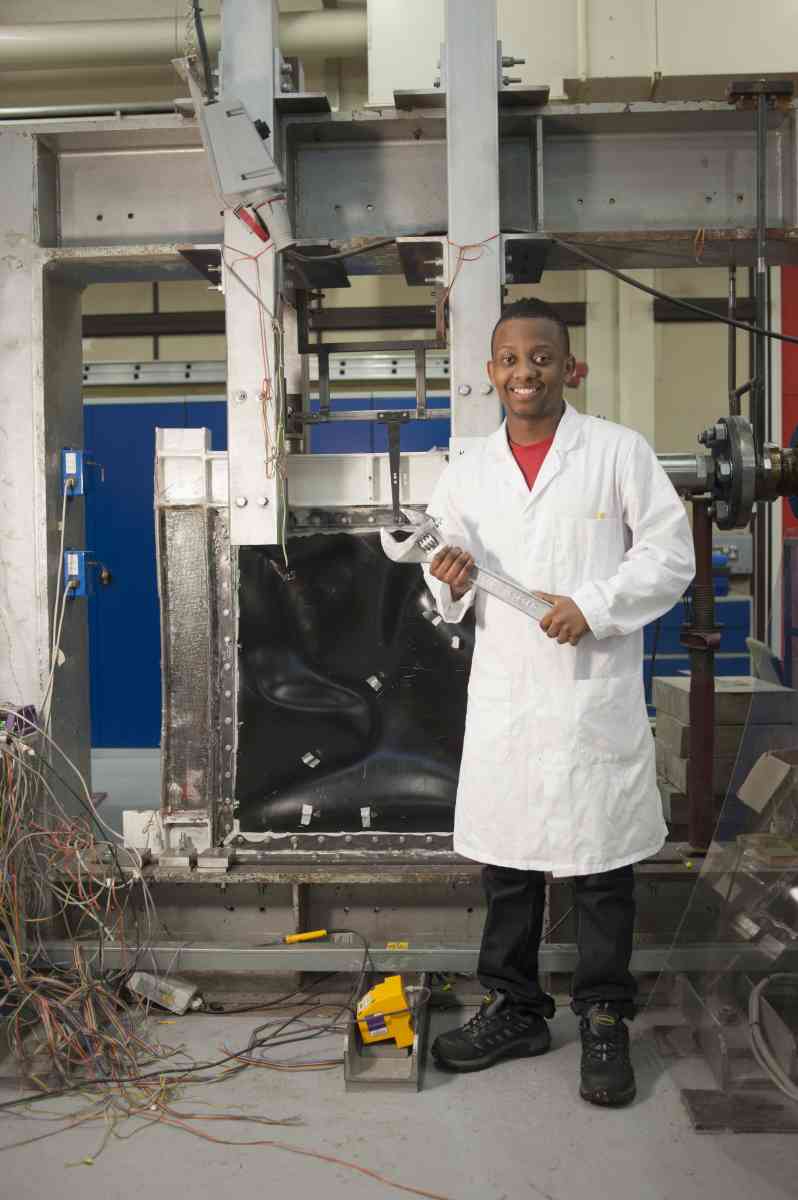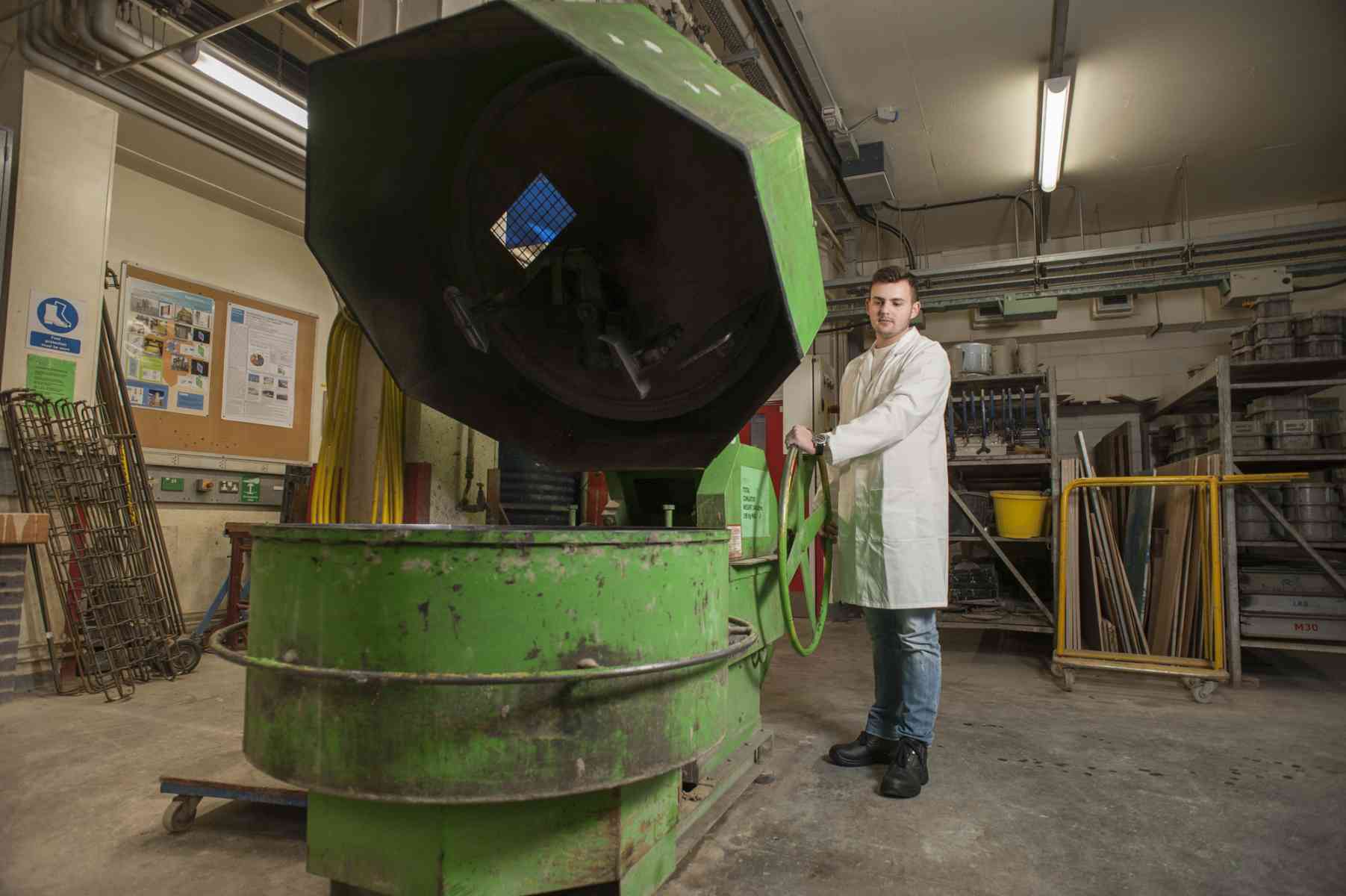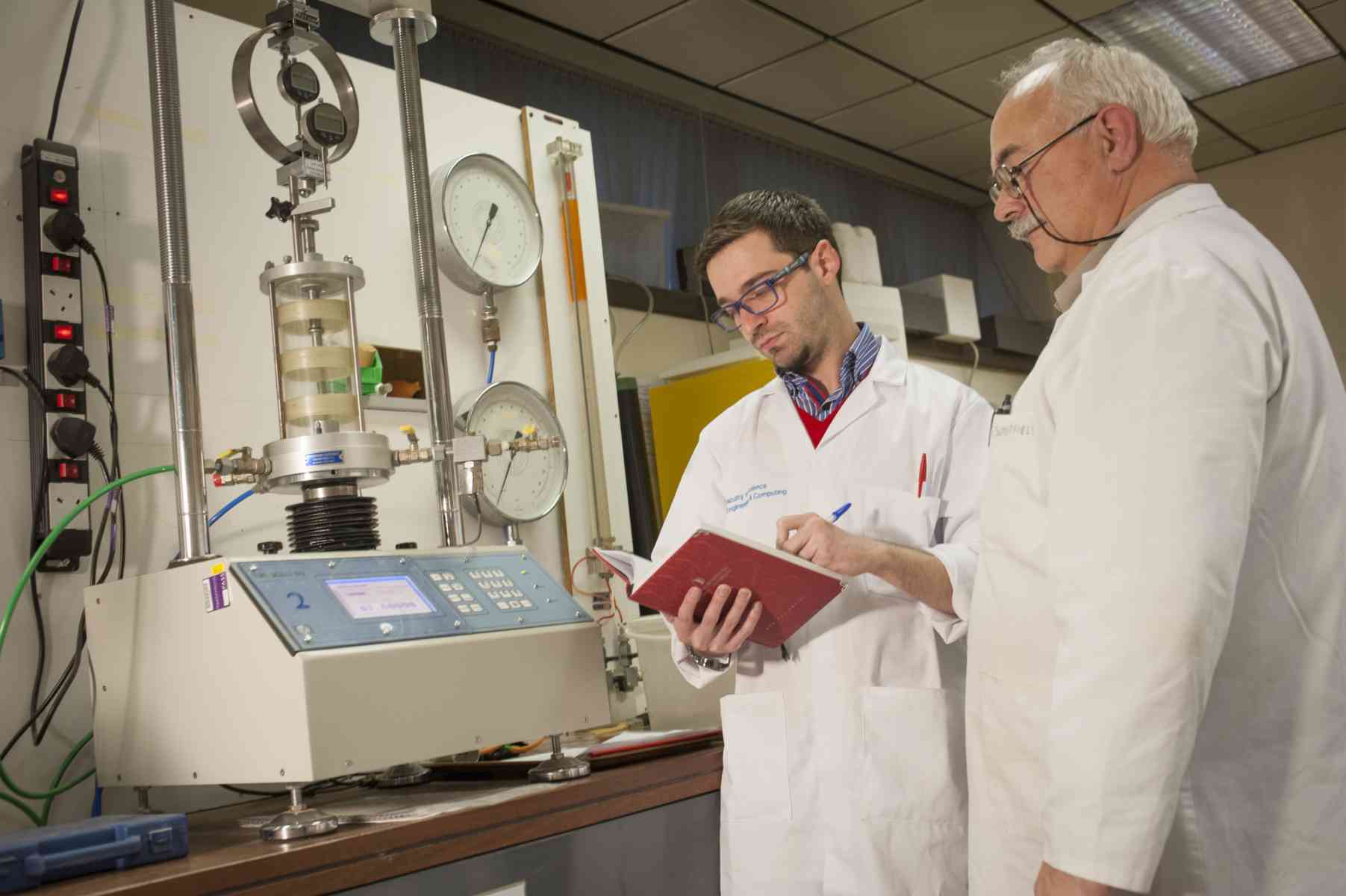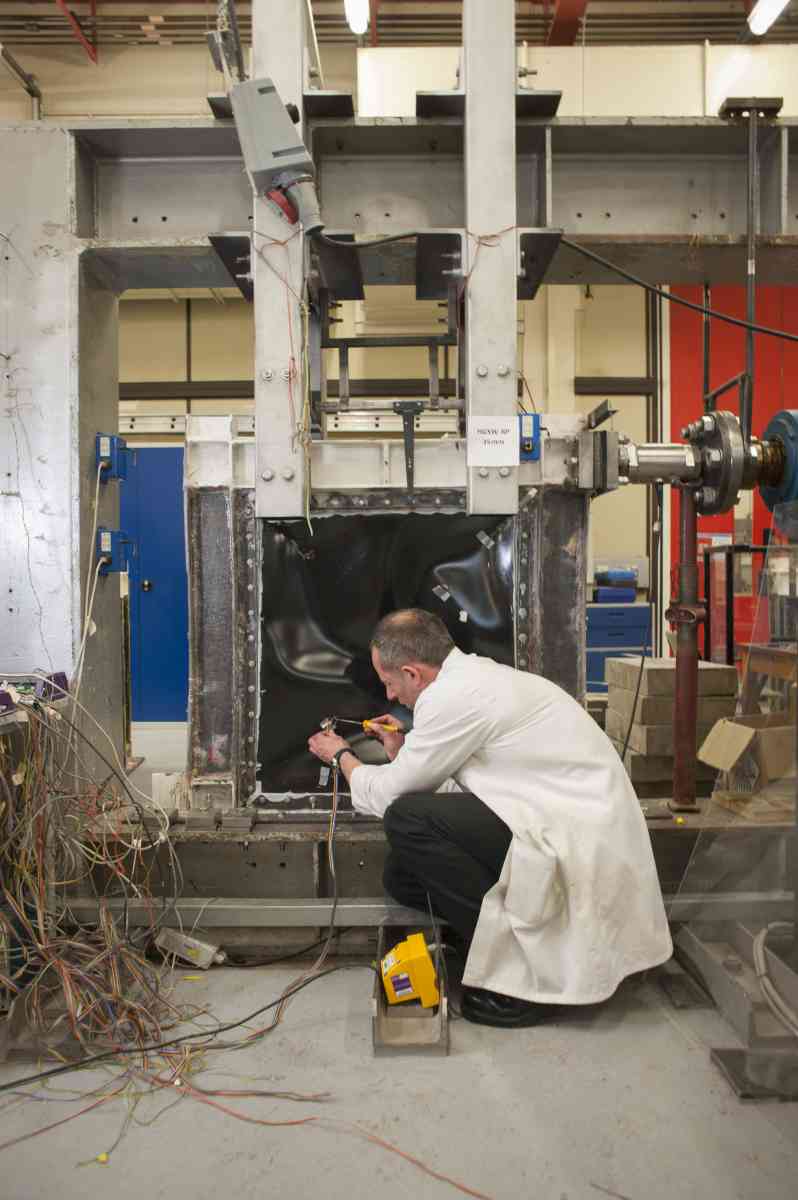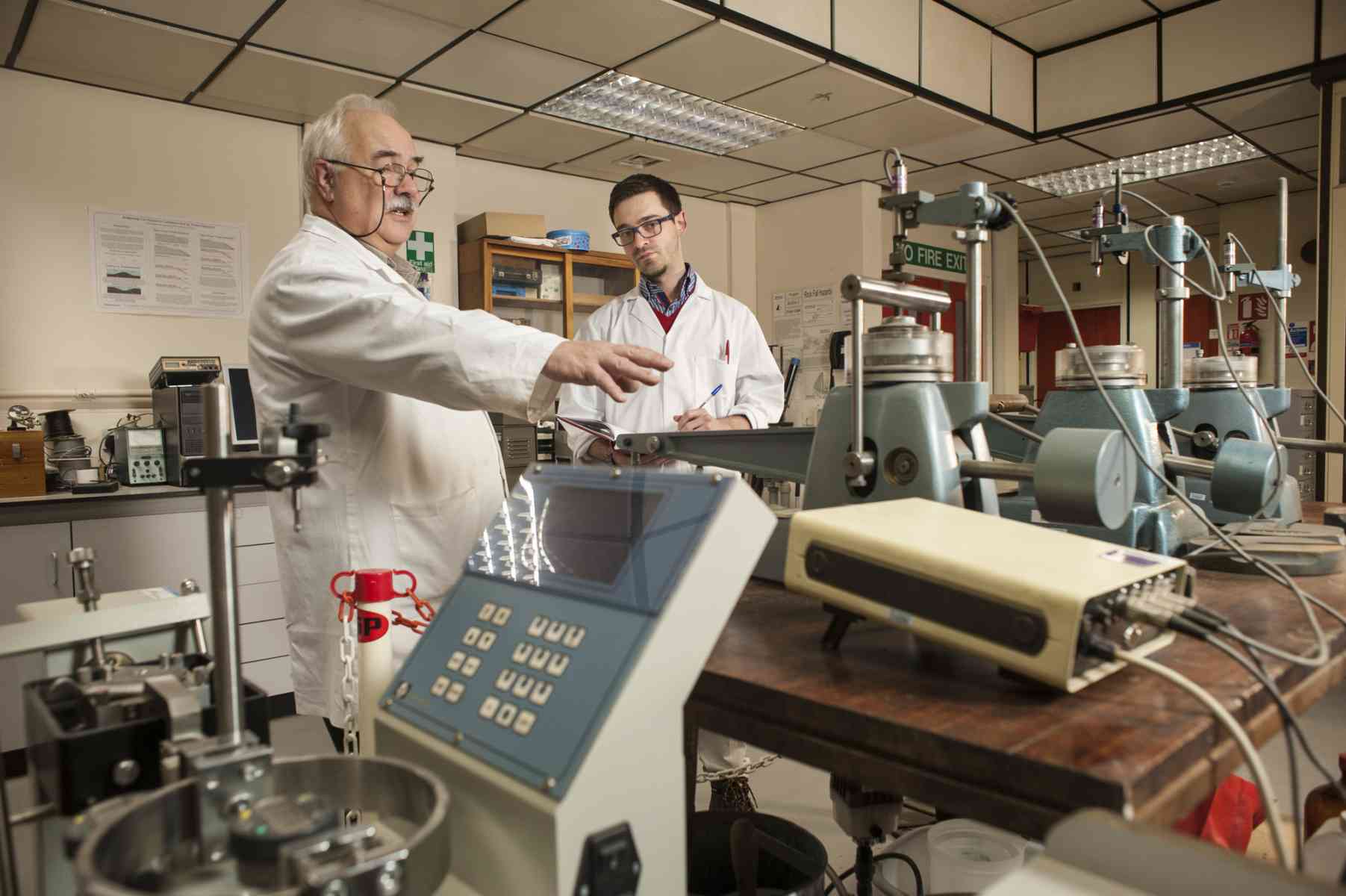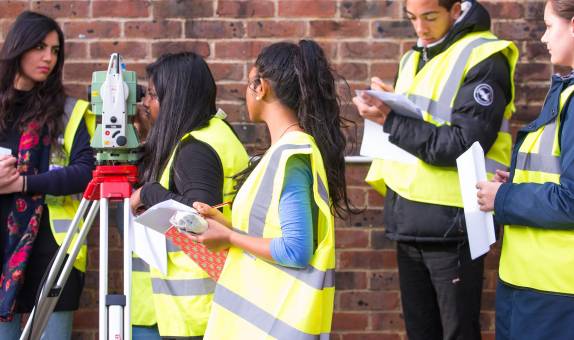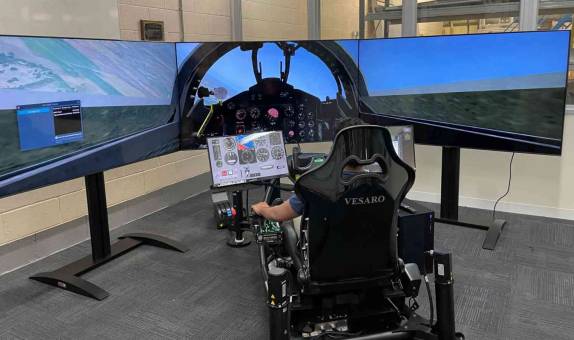Construction Project Management BSc (Hons)

Teaching Excellence Framework (TEF) Gold award
Our commitment to high quality teaching has been recognised with a TEF Gold rating. The University has received an overall rating of Gold, as well as securing a Gold award in the framework's two new student experience and student outcomes categories.
Why choose this course?
Construction project managers play a crucial role. They ensure projects are completed on time, to budget, to a specified quality and meet the client's needs.
The demand for construction project managers is increasing as the construction industry continues to grow – there are more than two million people currently employed in the sector across the UK.
If you are interested in becoming a construction project manager and ensuring the entire construction process goes smoothly and according to the plan, this course is ideal.
This course is designed to equip graduates with the knowledge, skills and professional behaviours that are expected from them as a construction project manager, in addition to being effective in mitigating climate change impacts on construction and human society.
| Course | Attendance | UCAS code/apply | Year of entry |
|---|---|---|---|
| Construction Project Management BSc (Hons) | 3 years full time | K251 | 20242025 |
| Construction Project Management BSc (Hons) | 4 years full time including sandwich year | K252 | 20242025 |
| Construction Project Management BSc (Hons) | 6 years part time | Apply direct to the University | 20242025 |
Please note: Teaching on this course may take place on more than one KU campus.
| Main location | Penrhyn Road |
Reasons to choose Kingston University
- This course is accredited by the Chartered Institute of Building (CIOB), leading to full membership of the Institute.
- An industry work placement will give you real-life experience of construction, management, civil engineering and surveying.
- This degree focuses on the construction processes as well as learning about management, economics, logistic, finance, people management, law, digital technologies and information management system and decision-making, preparing you for managing construction projects. It also emphasises the climate emergency in construction, health and safety, professionalism, ethics, diversity and inclusion.
- Kingston University is ranked No.3 in London for Construction, Surveying and Planning (The Guardian University Guide 2024).
Professional Accreditation
This course is accredited by the Chartered Institute of Building (CIOB), leading to full membership of the Institute. See the Chartered Institute of Building (CIOB) website for more information.
What you will study
Please note that this is an indicative list of modules and is not intended as a definitive list. Those listed here may also be a mixture of core and optional modules.
Year 1
Year 2
Year 3/4
Year 1 introduces Navigate for Professional Engineers (a Future Skills module that aims to assist students in making the transition to Higher Education, develop strong foundations of self-awareness and self-motivation, and generate a sense of belonging to their course and Kingston University), sustainability, climate literacy, the United Nations Sustainable Development Goals (UNSDGs), construction management practice, professional practice, construction technology and techniques, and construction law and its regulatory.
Core modules
Navigate for Professional Engineers
15 credits
You will be introduced to your course learning aims and will consider your learning targets from now until graduation. You'll take ownership of your personal academic journey through the development and application of academic skills aligned to Kingston's Graduate Attributes and your discipline-specific professional body learning outcomes.
You'll be tutored in a range of 'learning to learn' techniques. You'll be introduced to assessment for learning and the roles of feedback, reflection and feedforward as integrated parts of your learning journey. This will be supported through active engagement in Kingston's Navigate Programme.
Sustainability for Professional Practice
15 credits
This is module you will explore the environmental, economic and social problems that society faces, and you'll be encouraged to find and create sustainable innovative solutions.
You will be introduced to the complex societal problems and current time challenges associated with social justice, cultural inequalities, ethics and climate change emergencies. You will be immersed in a culture of education, which provides knowledge, values, attitudes and skills, and encouraged to think about possible solutions for the economic, environmental and social objectives set by the United Nations Sustainable Development Goals (UNSDGs), and the challenges in achieving those goals.
Introduction to Quantification of Construction Works
15 credits
You'll be introduced to the principles of measurement of construction work. You'll focus on the detailed quantification of simple buildings in order to gain an understating of industry rules and conventions for measuring construction work and their application.
Upon completion, you should be able to competently measure the building envelope of simple residential buildings.
Introduction to Law and Regulatory Context
15 credits
This module will give you an overview of the modern English legal system, with a specific focus on key legislative and regulatory frameworks. It covers essential aspects of contract law and introduces elements of tort law relevant to the construction industry.
Additionally, you will explore regulations and statutory acts that are applicable in the UK construction sector. You will learn to employ appropriate legal methodologies to address scenario-based legal problems.
Principles of Construction Management Practice
30 credits
This module provides you with an introduction to the construction industry and develops your awareness of the skills required of a construction manager. You'll learn about the issues connected within the construction project environment, such as stakeholders' diversity, construction planning and operation of the building and construction process within the industry.
Introduction to Construction Technology
30 credits
This is a core technology module where you will explore alternative construction materials and technologies used for low-rise built facilities. You will learn about the impact of construction methods and materials on important issues, including building regulations, health, safety and welfare regulations, sustainability and the environment.
By the end of the module, you should have developed a fundamental knowledge of building types, and be able to interpret drawings, produce sketches and appreciate the reasons for the selection and use of different construction materials and service solutions.
Year 2 includes Exploring Engineering Project Management – a Future Skills module which scaffolds Navigate from Year 1 and is skills-rich. It includes the development of team-working, interpersonal and interdisciplinary skills, critical self-reflection, communication and presentation skills, and the ability to organise, strategise and prioritise. You will also learn about digitisation in construction (i.e. using REVIT and BIM related software), construction technology including its environmental services, and business and legal principles including contract administration, planning, scheduling and cost planning.
Core modules
Digital Technologies and Construction Modelling
15 credits
The module provides an in-depth understanding of digital technologies and construction-related information modelling in the built environment context. You will learn how digital construction has revolutionised the construction industry and how Building Information Modelling (BIM) and its closely related digital technologies are used as tools for the realisation of the Construction Industry 4.0.
The course covers various aspects of digital design, construction, and operation and maintenance, including the knowledge and use of tools related to BIM, virtual reality, artificial intelligence, and geographic information system. You will learn about BIM software, collaboration techniques and project delivery methods.
You will also develop digital skills and knowledge such as data management, quantification, project team collaboration and cost analysis.
Procurement and Contract Administration
15 credits
This module introduces you to procurement strategies for executing construction projects and the intricacies of contract administration. The course identifies the various procurement routes for different project circumstances. The module further extends your critical knowledge and understanding of the contract administration and financial management duties of the project manager.
Although there will be lectures, the teaching and learning emphasis will focus on developing your core knowledge and interpersonal skills using scenarios, workshops and a day field trip to an ongoing project in a major city in England. This will help increase your problem-solving competencies and communication skills development. The module will be assessed by coursework.
Construction Technology and Environmental Services
15 credits
This module provides insights into the construction of commercial and other buildings. The module will extend your knowledge and skills in construction technology and services, from the basic types of construction to framed and more complex commercial structures.
By the end of the module, you should have developed a critical knowledge of building types, be able to interpret drawings, produce sketches and appreciate the reasons for the selection and use of different construction materials and services solutions.
Exploring Engineering Project Management
15 credits
This module considers the principles and practices for the design and management of engineering projects. The nature of engineering project management is discussed in the context of constraints on quality, time, risk, and sustainability. The module broadens your knowledge of how organisations undertake and monitor projects.
Construction, Planning, Scheduling and Control
30 credits
In this module, you'll consider the principles and practices for the management of construction projects. The nature of construction project management is discussed in the context of contemporary issues and constraints, including time, cost, quality, and sustainability.
Design Appraisal and Cost Planning
30 credits
This module introduces the design appraisal of a construction project. You will develop cost management techniques and skills used during design development.
It will enable you to comprehend the principles of the subject, and apply cost management and planning techniques. You'll learn about value management, life cycle costing, cost reporting, and tools for managing the cost of construction projects at the pre-construction stage, from their initiation toward the design process as well as construction on sites.
Final year students will be guided to interact with professional and learning communities beyond the University and reflect on these interactions through Applied Business Management (a Future Skills module). Here, students will demonstrate the ability to apply their developing professional skills competencies in their chosen area and prepare themselves for employment and entrepreneurship.
The final year involves the in-depth study and application of contractual procedures including health and safety and environmental law, site practice and management, Construction Information Management System as part of digitisation in construction, feasibility of project and managing collaborative workflows in a BIM environment. You will carry out an individual project focused on research into a specialised subject.
Core modules
Applied Business Management
15 credits
Students will demonstrate the ability to apply their developing professional skills competencies in their chosen area and will ensure they have a broad understanding of the business environment in which professional activities are undertaken. The module will develop the student's technical, management and interpersonal skills required to perform in a team environment, and prepare the students for employment and entrepreneurship.
Students will participate in Kingston University's Bright Ideas competition where they will work together as a team to develop a business idea of their choice. To do this they will need to interact with relevant stakeholders outside of the University.
Project Feasibility Studies
15 credits
This module builds upon curriculum taken in level 4 and level 5. The main aims are to provide a detailed appreciation of feasibility study of construction projects – including development and project brief – sustainability performance and the various factors that impact a cost-effective building design.
The lecture content promotes the benefits of holistic building design and construction that gives due consideration to the service life of the buildings, the design and appraise carbon/energy assessment techniques to provide the management of buildings over the course of their life cycle.
Construction Information Management Systems
15 credits
This is a core module taken by Building Surveying, Construction Management and Quantity Surveying students at Level 6. The module provides an in-depth understanding of Building Information Modelling (BIM) and Construction Information Management System (CIMS) in the construction industry.
It covers various topics related to BIM and CIMS, including their application, benefits, challenges and future developments. The module will begin by recapping the fundamental concepts of BIM and CIMS, including the evolution of BIM and its importance in the construction industry. It will then delve into the different stages of BIM and CIMS, including modelling, collaboration, documentation, and analysis.
The module will cover various software tools that are commonly used in BIM and CIMS, such as Autodesk Revit, Navisworks and BIM 360. This module is to enable the students to apply and evaluate the key principles of BIM with the students undertaking a collaborative interdisciplinary project to apply and develop their skills in a scenario-based group project.
Finally, the course will discuss the future trends and developments in BIM and CIMS, such as the use of Artificial Intelligence (AI), Machine Learning (ML) and Virtual Reality (VR) in construction.
Construction Law and Contract Practice
15 credits
This module aims to provide you with a comprehensive understanding of the legal aspects related to construction projects. It is designed to equip you with the knowledge and skills necessary to navigate the legal framework governing the construction industry, particularly in contract administration and management.
This module enhances your analytical and critical thinking abilities when confronted with legal and professional practice challenges. It promotes a holistic comprehension of sustainability in the context of the built environment and provides an in-depth examination of construction disputes and the commonly employed methods of dispute resolution.
You will acquire practical techniques for effective time management, develop proficiency in locating, interpreting, utilising and referencing legal sources, and cultivate essential attributes valued by the construction industry, including collaboration, team building, critical and analytical thinking, problem-solving, effective communication, initiative and creativity.
Site Practice and Management
30 credits
This module is core to professional practice in construction project management. The module is a unique combination of developing and deepening students' understanding of construction site set-up, and the associated health and safety management.
The module is situated at Level 6 specifically to prepare students with the necessary knowledge and understanding of construction site practice and management, including site establishment, health and safety, quality, waste, sustainability, teamwork and leadership required for graduate employment.
Individual Project
30 credits
This is a core module for Level 6 BSc students. The individual project is an opportunity to explore a subject of the student's own choice and to initiate, design and execute a small-scale research project under supervision.
The work in the project will draw upon material from all modules previously or currently taught and provide a culmination to their degree. Additionally, this allows the students to develop and practice their research skills which will be invaluable for the future.
The students are encouraged to work independently, study a topic in depth, review previous work, collect, and interpret and analyse information. This is also intended to develop students' ability to communicate clearly and succinctly orally, graphically and in writing.
In undertaking the work, students should demonstrate knowledge and competence in reviewing literature and in using one or more of a range of research methods to collect and analyse data and draw well-founded conclusions. To support the student a series of workshops will be given along with individual one-to-one supervision to ensure the student is supported throughout the process.
Assessment is by submission of an initial formative research statement, and summative assessments comprise an interim report and the completed project.
Future Skills
Knowledge to give you the edge
Embedded within every course curriculum and throughout the whole Kingston experience, Future Skills will play a role in shaping you to become a future-proof graduate, providing you with the skills most valued by employers such as problem-solving, digital competency, and adaptability.
As you progress through your degree, you'll learn to navigate, explore and apply these graduate skills, learning to demonstrate and articulate to employers how future skills give you the edge.
At Kingston University, we're not just keeping up with change, we're creating it.

Entry requirements
Teaching and assessment
Scheduled learning and teaching on this course includes timetabled activities including lectures, seminars and small group tutorials.
It may also include placements, project work, workshops, workshops in computer labs, and laboratory workshops.
Who teaches this course?
Having developed our courses with the working world in mind, we offer hands-on student experiences such as testing in our exemplary laboratory facilities in civil engineering and construction that are used for teaching and research. Knowledge is also gained from site visits and industrial placements; employability support via our strong partnerships with industry, professional institutions and learned societies.
Our teaching is engaging and practice-focused and supported by site visits and invited guest lecturers by our industrial liaisons and strong alumni network. Our approach to assessment is project-based and seeks to equip students with a range of competencies and transferrable skills thus boosting their employability prospects.
Postgraduate students may run or assist in lab sessions and may also contribute to the teaching of seminars under the supervision of the module leader.
Facilities
There is a wide range of facilities for practical work at our Penrhyn Road campus, where this course is based. You will have access to a modern environment with the latest technology and industry-standard equipment, including:
- extensive materials and structures facility for concrete, masonry, steel and timber
- geotechnical and hydraulics testing facilities
- surveying equipment, such as satellite global-positioning systems.
Dedicated computer-aided design facilities include:
- a range of CAD/CAM packages, such as Ideas, SolidWorks, AutoCAD and REVIT
- finite element analysis
- computational fluid dynamics
- virtual instrumentation.
Course fees and funding
Additional costs
Depending on the programme of study, there may be extra costs that are not covered by tuition fees which students will need to consider when planning their studies. Tuition fees cover the cost of your teaching, assessment and operating University facilities such as the library, access to shared IT equipment and other support services. Accommodation and living costs are not included in our fees.
Where a course has additional expenses, we make every effort to highlight them. These may include optional field trips, materials (e.g. art, design, engineering), security checks such as DBS, uniforms, specialist clothing or professional memberships.
After you graduate
You'll graduate with technical and communication skills that are in demand in many sectors. Through Kingston University's links to industry, placements and positions may be offered following graduation.
What our students say
Placement case study – Ollie Notley
Placement company: Fluor
Work placement year
How you can work in industry during your course
Placements:
- provide work experience that is relevant to your course and future career
- improve your chances of graduating with a higher-grade degree
- enhance your CV
- lead to a graduate job
- enable you to earn a year's salary whilst studying (the vast majority of placements are paid)
- help you to select your final-year project.
"To be successful, tomorrow's leaders will need to be far more rounded individuals than ever before. They will collaborate in pursuit of shared goals. They will guide, challenge and support...They will have an appetite for change and a hunger for continuous improvement, and they will have an ethos of learning and development..." Jeremy Darroch, Former Chief Executive, Sky.
"Doing a placement year effectively gives you one foot in the door of a future job and to stand out from the crowd... as well as enhancing my CV... and future interviews. It's a great motivator to be successful in my studies as it only serves to open even more doors and gain more skills." Placement student at Jagex Games Studios Ltd.
There is a lot of support available for students looking to secure a placement (e.g. a jobs board with placement vacancies, help with writing CVs and mock interviews). Getting a placement and passing the placement year are ultimately the student's responsibility.
Examples of placements
Placements can be with large multinational companies, international companies, local companies and small start-ups; offering a diverse range of posts. Here are some examples of employers and roles:
| Construction-based placement employers | Construction-based placement roles |
|---|---|
| RG Group Multiplex Costain Willmott Dixon Fluor |
Assistant site manager Assistant trades package manager Assistant logistics manager Health and safety officer Construction engineer |
| Science-based placement employers | Science-based placement roles |
| Reckitt and Benckiser GSK Drug Control Centre Minton Treharne and Davies Ltd Various local and international hospitals |
Bioanalytical sciences Lab assistant Pharmacy assistant Sports coach |
| Engineering-based placement employers | Engineering-based placement roles |
| Airbus BAM Nuttall Nissan Bosch Wozair |
Analysis of aircraft structure Construction resources specialist Site engineer assistant |
| Computing and IS-based placement employers | Computing and IS-based placement roles |
| Disney Sony Interactive Entertainment Europe IBM McKinsey Intel |
Database coordinator Software developer Website developer App developer |
| Mathematics-based placement employers | Mathematics-based placement roles |
| Lloyds Banking Group AXA Allianz PAU Education, Spain |
Analyst Investment solutions Research analyst Accounts assistant |
Key information set
The scrolling banner(s) below display some key factual data about this course (including different course combinations or delivery modes of this course where relevant).
Course changes and regulations
The information on this page reflects the currently intended course structure and module details. To improve your student experience and the quality of your degree, we may review and change the material information of this course. Course changes explained.
Programme Specifications for the course are published ahead of each academic year.
Regulations governing this course can be found on our website.
